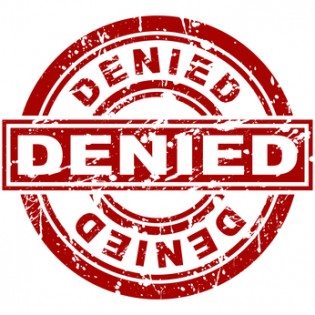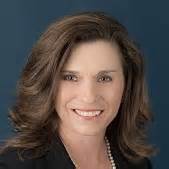Insult to Injury

How a professional rejection was made infinitely harder by my rabbi’s lack of compassion.
by Melody Wilensky
I was a child in the 1960s when my parents moved from Alabama to Miami Beach. Born Catholic, I felt overwhelmingly different from my new classmates, many of whom were Jewish. Eventually I made a friend in the fourth grade. Ellen was stick-thin, and her long, frizzy hair flew around her pale face, framing large, brown eyes.
One day after school, I was invited to play at Ellen’s house. As her mother made us a snack, her arms bare in the Florida heat, I saw the tattooed numbers and opened my mouth to speak. Ellen’s mother was quick when she noticed what caught my eye. That was the day I learned about the Holocaust.
I returned home, upset at my mother because, after all, how could she have never told me? I felt hurt, angry, and confused. These emotions morphed into an inexplicable connection to those perished souls. The connection blossomed and, over time, burst into a magnificent belonging and devotion to klal Yisrael.
As an adult, I chose to become Jewish, but I also believe that Judaism chose me long before, in the kitchen of Ellen’s house.
Years later, my husband and I settled in a small New England town, raising two children. It was a one-shul town, the synagogue congregation a motley round up of intellectuals, potheads, and New Age devotees, with traditional types strewn in here and there. We became enmeshed in the community and the congregation, volunteering our time, teaching religious school, overseeing the kosher kitchen, re-starting Shabbat childcare and junior congregation and offering shomer Shabbat hospitality.
Then the unthinkable happened. My husband was visiting his grandparents in Florida and got into an auto accident. He was severely injured, but came home to me in one piece. He was in so much pain he could hardly work, and our family finances suffered.
I became desperate to find full-time, salaried work. I had been freelancing as a writer and was working from home while our children were young. Fortuitously, the synagogue was looking to hire a full-time administrator at that time. Since I had done every single job, save for gabbai and rabbi, I thought I had a great shot at getting the job. We were putting groceries on credit cards, and I did not know how we would dig ourselves out. This job held hope.
But it was not to be. The interviews were conducted by a large committee of congregants with whom I had prayed, laughed, and cried, and whose children my husband and I had taught over the years.
Their questions were like a firing squad aimed at my soul. “How will you deal with those who are not as observant as you?” “Will you stand in judgment over them?” “Do you really think you are the right one for the job given that you are so religious?” And then the final nail in the coffin: “You’re just too Jewish.” Me?
Shocked and numb, I narrowly escaped each interview before the tears began to flow. When I got the call that I wasn’t chosen for the job, I felt as though all the sparks in my soul had been extinguished.
At such a moment of spiritual despair, to whom does one turn?
The rabbi was young and brand new. He had not participated in the interviews. I tried to articulate the hurt and the rejection the interviewers had made me feel, searching his eyes for understanding.
Inept at seeing my heartbreak, he was glib when he tried to employ Kabbalah for the rationale of the committee’s decision. “There’s a certain contraction that happens in order for us to move forward,” he told me.
“But my family is suffering,” I said. “I needed this job. If we do not help our own when they need it, what are we?” I asked.
Later I learned that tzimtzum, or contraction, is part of the concept of creation in Kabbalah. It is the pulling away of God’s presence from the consciousness of finite reality, creating an empty space that fills itself with God’s essence.
Not long after, my family relocated across the state where, once we found a synagogue home and community, we began to feel whole again. My soul has some dents and scratches, but it is still within me, and for that I am grateful.
About the Author
 Melody Wilensky lives in Newton, Massachusetts, and works in financial services. She is studying to become certified as a financial planner. Previously she was a reporter/editor for the Jewish Advocate of western Massachusetts, as well as a grant writer for Gateways: Access to Jewish Education.
Melody Wilensky lives in Newton, Massachusetts, and works in financial services. She is studying to become certified as a financial planner. Previously she was a reporter/editor for the Jewish Advocate of western Massachusetts, as well as a grant writer for Gateways: Access to Jewish Education.

I read this with interest. The topic of this series of articles “grabbed me”, though I have never engaged in dialogue with anyone on this site, I like to comment. I have personally experienced some major mystical, spiritual events, that are in the realm of Kabbalah, as in seeing the Hebrew letters shining in the moonlight, all of them, made of rain, following a rainfall, following a class I was taking with a friend, on Jewish Mysticism, with a man who is now a rabbi in Safed, Israel. She saw this too. Neither of us returned to this class, because our vision, our shared reality, on that street, Tremont in Cambridge, at that shule, where they dance outside on Simchas Torah, was THAT powerful and also scary. But since then the letters literally come to me, and I am taking a walk across Babel, and also experiencing massive synchronicity. I tried in those early years to talk to rabbis about this, and no one, not one of them, ever heard me. My words were shunted aside, falling instantly into invisibility, sugar dissolving in hot tea. I then needed someone, a rabbi, to speak to, about this vision, about what was surely happening in this small life. It was apparent, no rabbi was going to listen. I wrote reams of commentary on Chabad, and wrote about my life. No response. I took the Me’Ah program at Hebrew College and wrote, as required, a heartfelt letter, for admission, no response. I went to Temple Beth Zion, and met with Moshe Waldoks. He didn’t hear me. He talked about his meeting with the Dalai Lama, about himself. And so I learned to take this journey in a most solitary way, going around the world, meeting people from all over. This journey of mine feels totally scripted, as in meant to be. There is nothing visibly random about my life, and hurt, so much a part of the letters that rearrange to spell my name, being Ruth. And so I learned to be a rebel, and always was, and I believe God loves rebels, as there is rebbe in that word. And as for me, I have made friends around the world, in documenting a story that feels out of this world, and for this Grateful. As for rabbis, I think they have a lot to learn in the humility and listening department. Because God has got to be laughing. The story, this record, Amazes me, every day, in every singing single way. SHALL OM.